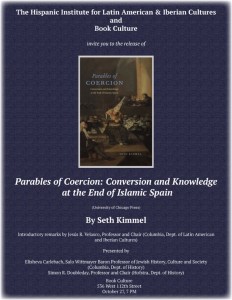Consuelo Dutschke, curator of medieval and Renaissance manuscripts at Columbia University, has been awarded the Medieval Academy of America’s Kindrick-Cara Award for her work on the Digital Scriptorium project.
The Committee praised Dr. Dutschke’s “tireless and expert work with manuscript collections in libraries across the country. But this award specifically recognizes her leadership in the creation and development of the project known as Digital Scriptorium (DS), which she began in 1997 and which she has ‘patiently and tenaciously’ developed, organized and promoted to the present….Consuelo has been a tireless advocate and teacher for the project and its many uses, guided all the while by her ‘constancy, optimism, and skillful diplomacy,’ which has allowed the project to flourish. The letters of nominations were exuberant in their praise for her profound technical skills, the breadth of her knowledge, her ability to learn new technologies and media, and her boundless generosity toward colleagues, students and scholars. Her endeavors truly constitute an outstanding contribution to the field of Medieval Studies, for which we humbly thank her and offer this award in recognition.”
A warm, heartfelt congratulations to Dr. Dutschke for this recognition!



